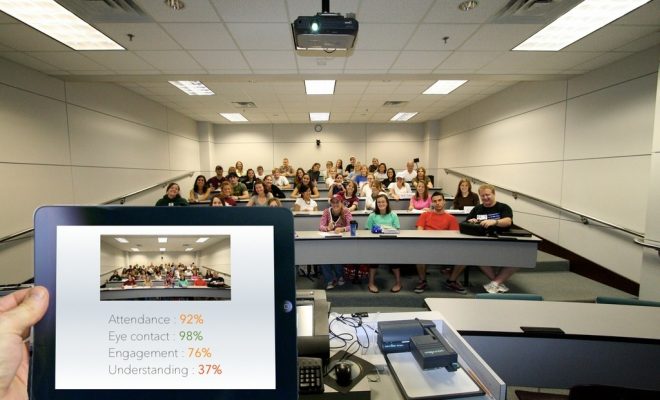Why Professors Shouldn’t Ban Smartphones

As smartphones have become more common, educators have struggled with the question of what to do with smartphones in the classroom. For K-12 educators, the answer has been to ban smartphones from the classroom completely. College professors have also banned smartphones in increasing numbers. But now there’s some evidence to suggest that banning smartphones in the college classroom isn’t such a good idea.
A study conducted by researchers in Singapore found that undergraduate students who were allowed to keep their phones with them actually scored better on tasks that measured their cognitive functioning. Even when they weren’t allowed to use their phones, students who were allowed to keep their phones in their pockets performed better than students whose phones were confiscated.
In this case, researchers theorized that the poor performance by students without phones was due to a kind of smartphone withdrawal. When students had their phones taken away, they may have been anxious about missing out on something—a text message or friend request, for example. This anxiety could take students’ minds off of what they should be learning.
Smartphones could have academic uses
While professors may be quick to ban smartphones, it’s rare to find a professor who doesn’t allow laptops in the classroom. Most professors who allow laptops but not smartphones would likely argue that laptops can be used to take notes or for other academic purposes. However, as smartphones have become more powerful, they can do many of the same things.
Microsoft Office has long been the standard for productivity, and for years it was only available on PCs. Today, many smartphones can run Microsoft Office applications such as Word, Excel, and PowerPoint. Smartphone users can also find a wide variety of apps that replace old paper-and-pencil methods. There are apps for note-taking and calendar apps that students can download for free.
In some cases, smartphones are even better than laptops. In addition to being easier to carry around, smartphones have features that laptops lack. Smartphones enable students to instantly snap photos of anything the professor presents, such as charts, pictures, and diagrams that may help them understand concepts when they study.
Smartphones are also a great tool for student who like to record lectures. Students no longer have to carry around a recording device—they already have one in their pocket. Listening to those recorded lectures is a lot easier with a smartphone, too, since students are never far from their phone.
Smartphones are always handy
The fact that students always have their smartphones with them actually makes their phones a better tool. Anything that students save on their phone, whether it’s a recorded lecture, class notes, or pictures, is accessible anytime.
Cloud-based apps, like Google Drive, have made it even easier for students to access information on their phone. Students can store anything they want on the cloud using their phone, then go home and review what they saved on a laptop or tablet.
Banning smartphones might be impossible
Any professor who’s tried to ban smartphones can attest to the fact that it isn’t easy to get students to give up their phones. There will inevitably be students who try to sneak their phones in anyway or refuse to hand them over. This can lead to wasted class time, as professors are forced to argue with students or impose consequences on those who refuse to comply.
Ultimately, trying to ban smartphones is nearly impossible. When it is possible, it can end up taking up more time and effort than it’s really worth. After all, if college-aged students are so distracted by their smartphones that they aren’t learning, it may be time for them to learn a lesson about using technology appropriately in the form of a lower grade. Smartphones, like laptops, are a tool—they can be used for academic purposes or can be a detriment to learning. It’s up to students to find ways to use them correctly.
Can professors make smartphones a useful classroom tool, or are they too much of a distraction? Tell us what you think!






